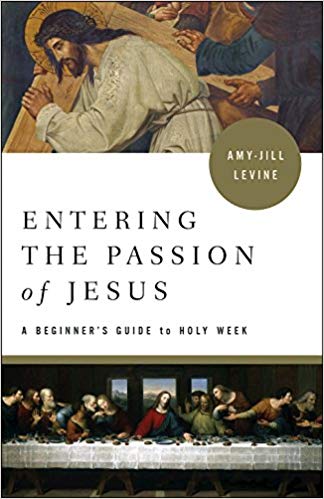Q. The Temple scene is the one place where Jesus uses physical force as an expression of his righteous anger. But anger about what— graft and corruption, usurping the Gentile’s place of prayer, turning the Temple into a marketplace? Was it actually a cleansing, or was it a prophetic sign act? It seems to me that it must have been the latter, since it was done on a small scale it would appear. But a prophetic sign of what, a protest against what? You suggest in the video that the phrase ‘den of robbers’ refers to a safe haven for robbers, based on the original setting in Jeremiah, but that doesn’t seem to explain Jesus’ contrast—- ‘this is supposed to be a house of prayer but you’ve turned it into a den of robber’. We know from Mk. 13 that Jesus did foresee the coming destruction of the Herodian temple, could his prophetic sign act be about that? Or was it just a protest against misuse of the prayer space to make a profit? Say more about how you read this crucial episode. It is perhaps worth pointing out that Jesus’ violence here is not directed against other human beings, so it probably shouldn’t be seen as at odds with his ethic of non-violence enunciated in Mt. 5-7?
A. It is possible the Temple incident never happened. I can see it as a story based on Jesus’ comments about the demise of the Temple, so that a prediction became an event. Let’s say something happened: he disrupted some of the business in the Temple. The questions become both “why?” and “when?” The idea that Jesus performed the same action twice strikes me as less likely than that John changed the story from what he found in the Synoptics, so that for John, the Temple incident is of ultimately less importance than the raising of Lazarus.
The Jeremiah quote, with the Temple being a safe-haven for robbers, i.e., sinners, makes good sense to me as the prime meaning of the Synoptic version. I see no evidence of graft or corruption, of exploiting peasants or overcharging pilgrims. To the contrary, Jesus’ followers continued to worship in the Temple, as we see in Acts. Paul regards Temple worship (“service”) as one of the irrevocable gifts the Jews have. If Jesus and his followers found the Temple hopelessly corrupt, then they could have voted with their feet and left, as did the people associated with the Dead Sea Scrolls. Jesus could have told the poor widow to save her money.
Nor do I see a problem with gentile worship – good heavens, the Temple was huge, and the vendors were not occupying every space in the court of the gentiles. Nor should we think of the ancient Temple like today’s church, where the doors close at 11:00, the children are removed before the sermon lest they make a sound, and whispering is frowned upon.
It seems clear to me that Jesus is angry about hypocrisy. That, especially considering Jeremiah’s point, makes sense of his response. I wonder what would happen if people had that same righteous anger in churches today: congregations where people give thanks for reconciliation, but then by noon are back to business as usual: ignoring the hungry, the sick, the imprisoned…. , showing off the latest fashion, or car, or jewelry, even ignoring the stranger who comes into the church the first time. [The Epistle of James has some very good lessons on this, but that would be another series.]













